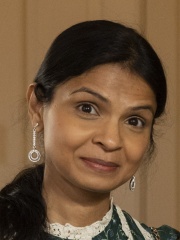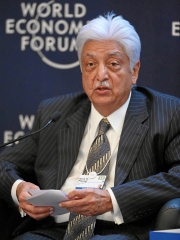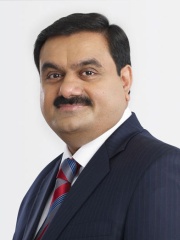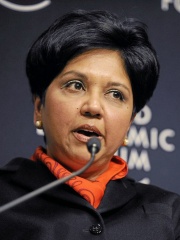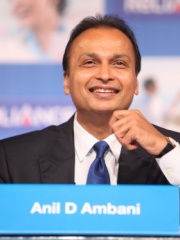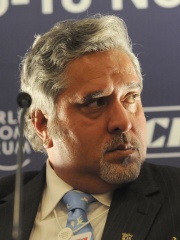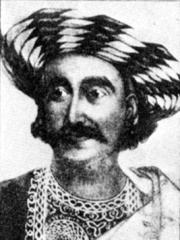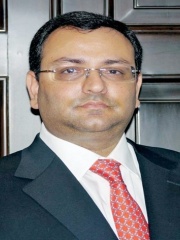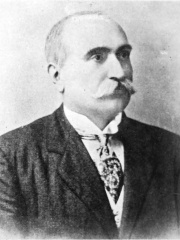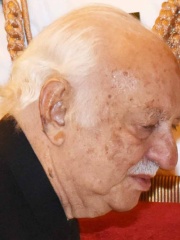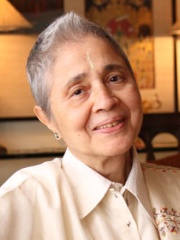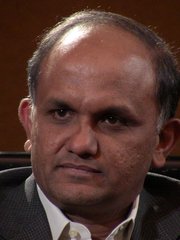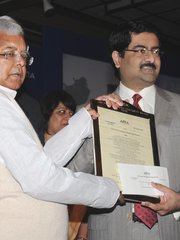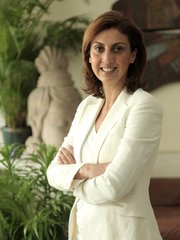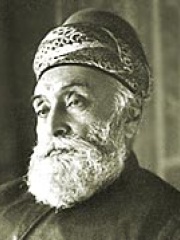
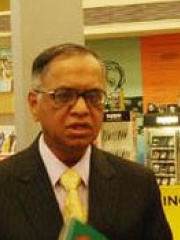
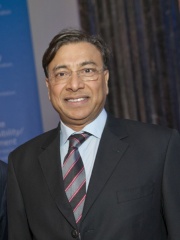
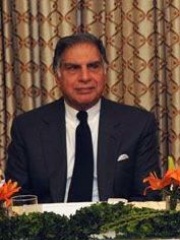
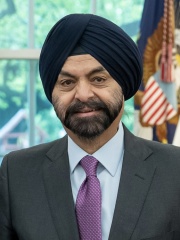
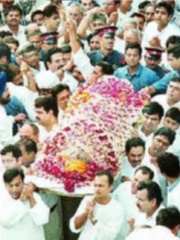
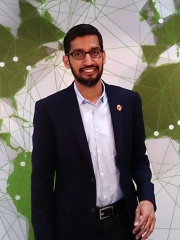
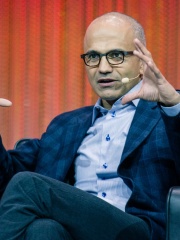
The Most Famous
BUSINESSPEOPLE from India
This page contains a list of the greatest Indian Businesspeople. The pantheon dataset contains 847 Businesspeople, 35 of which were born in India. This makes India the birth place of the 5th most number of Businesspeople behind Germany, and France.
Top 10
The following people are considered by Pantheon to be the top 10 most legendary Indian Businesspeople of all time. This list of famous Indian Businesspeople is sorted by HPI (Historical Popularity Index), a metric that aggregates information on a biography's online popularity. Visit the rankings page to view the entire list of Indian Businesspeople.

1. Jamsetji Tata (1839 - 1904)
With an HPI of 78.92, Jamsetji Tata is the most famous Indian Businessperson. His biography has been translated into 55 different languages on wikipedia.
Sir Jamshedji Nusserwanji Tata (3 March 1839 – 19 May 1904) was an Indian industrialist and philanthropist who founded the Tata Group, India's largest conglomerate. He established the city of Jamshedpur. Jamshedji Tata Born into a Zoroastrian Parsi family of priests in Navsari. Despite that, Tata broke tradition to become the first businessman in his menage, establishing an export trading firm in Mumbai. He graduated from Elphinstone College in Mumbai as a "Green Scholar." After working in his father's export-trading firm and recognizing opportunities in the cotton industry during a business trip to China, Tata founded a trading company in 1868. He later ventured into the textile industry and established Empress Mill in Nagpur, afterwards purchasing a bankrupt oil mill in Mumbai and converting it into a cotton mill. Tata's innovative strategies and commitment to industrial development in India led him to establish key institutions and companies, including the Taj Mahal Hotel in Mumbai, which was India's first hotel with electricity, and made significant contributions towards the establishment of the Indian Institute of Science, Tata Steel, and Tata Power. He was so influential in the world of industry that Jawaharlal Nehru referred to Tata as a One-Man Planning Commission. Jamshedji Tata was a philanthropist, particularly in the fields of education and healthcare. His donations and foundations laid the groundwork for modern Indian industry and philanthropy. Tata's legacy includes the city of Jamshedpur, named in his honour, and a lasting influence on India's industrial and social landscape. He married Hirabai Daboo, and their sons, Dorabji Tata and Ratanji Tata, continued his legacy within the Tata Group. Tata's contributions were recognized posthumously, including being ranked first in the "Hurun Philanthropists of the Century" (2021) by total donations of $102.4 billion (in 2021 prices) with the start of his key endowments back in 1892.

2. N. R. Narayana Murthy (b. 1946)
With an HPI of 71.20, N. R. Narayana Murthy is the 2nd most famous Indian Businessperson. His biography has been translated into 30 different languages.
Nagavara Ramarao Narayana Murthy (born 20 August 1946) is an Indian billionaire businessman. He is the founder of Infosys, and was the chairman, chief executive officer (CEO), president, and chief mentor of the company before retiring and becoming chairman emeritus. As of January 2025, his net worth was estimated at US$5.0 billion, according to Forbes. Murthy was born and raised in Shidlaghatta, Karnataka. He first worked at the Indian Institute of Management Ahmedabad, as chief systems programmer, and Patni Computer Systems in Pune, Maharashtra. He founded Infosys in 1981 and was the CEO from 1981 to 2002, as well as the chairman from 2002 to 2011. In 2011, he stepped down from the board and became the chairman emeritus. In June 2013, Murthy was appointed as the executive chairman for a period of five years. Murthy has been listed among the 12 greatest entrepreneurs of our time by Fortune magazine. He has been described as the "father of the Indian IT sector" by Time magazine and CNBC for his contribution to outsourcing in India. In 2005, he co-chaired the World Economic Forum in Davos, Switzerland. Murthy has been honoured with the Padma Vibhushan and Padma Shri awards. Murthy is the father-in-law of Rishi Sunak, who was Prime Minister of the United Kingdom from 2022 to 2024.

3. Lakshmi Mittal (b. 1950)
With an HPI of 67.21, Lakshmi Mittal is the 3rd most famous Indian Businessperson. His biography has been translated into 54 different languages.
Lakshmi Niwas Mittal (Hindi: [ˈləkʃmi nɪˈʋaːs ˈmɪtːəl] ; born 15 June 1950) is an Indian businessman and steel magnate. He is the executive chairman of ArcelorMittal, the world's second largest steelmaking company, as well as chairman of stainless steel manufacturer Aperam. Mittal owns 38 per cent of ArcelorMittal and holds a three per cent stake in EFL Championship football club Queens Park Rangers. Mittal resides in Switzerland and United Arab Emirates following his departure from the United Kingdom in 2025, where he had lived since 1995. In 2005, Forbes ranked Mittal as the third-richest person in the world, making him the first Indian citizen to be ranked in the top ten in the publication's annual list of the world's richest people. He was ranked the sixth-richest person in the world by Forbes in 2011, but dropped to 82nd place in March 2015, and only to 130th by October 2024. He is also the "57th-most powerful person" of the 72 individuals named in Forbes' "Most Powerful People" list for 2015. His daughter Vanisha Mittal's wedding (in 2005) was the sixth-most expensive in recorded history. As of 2025, Mittal's net worth was estimated to be £15.444 billion by the Sunday Times Rich List. Mittal has been a member of the board of directors of Goldman Sachs since 2008. He sits on the World Steel Association's executive committee, and is a member of the Global CEO Council of the Chinese People's Association for Friendship with Foreign Countries, the World Economic Forum's International Business Council, and the European Round Table of Industrialists. He is also a member of the board of trustees of the Cleveland Clinic. In 2005, The Sunday Times named him "Business Person of 2006", the Financial Times named him "Person of the Year", and Time magazine named him "International Newsmaker of the Year 2006". In 2007, Time magazine included him in their "Time 100" list.

4. Ratan Tata (1937 - 2024)
With an HPI of 66.33, Ratan Tata is the 4th most famous Indian Businessperson. His biography has been translated into 46 different languages.
Ratan Naval Tata (28 December 1937 – 9 October 2024) was an Indian industrialist and philanthropist. He served as the chairman of Tata Group and Tata Sons from 1991 to 2012 and he held the position of interim chairman from October 2016 to February 2017. In 2000, he received the Padma Bhushan, the third highest civilian honour in India, followed by the Padma Vibhushan, the country's second highest civilian honour, in 2008. Ratan Tata was the son of Naval Tata, who was adopted by Ratanji Tata, son of Jamshedji Tata, the founder of the Tata Group. He graduated from Cornell University College of Architecture with a bachelor's degree in architecture. He had also attended the Harvard Business School (HBS) Advanced Management Program in 1975. He joined the Tata Group in 1962, starting on the shop floor of Tata Steel. He later succeeded J. R. D. Tata as chairman of Tata Sons upon the latter's retirement in 1991. During his tenure, the Tata Group acquired Tetley, Jaguar Land Rover, and Corus, in an attempt to turn Tata from a largely India-centric group into a global business. Throughout his life, Tata invested in over 40 start-ups, primarily in a personal capacity, with additional investments through his firm, RNT Capital Advisors.
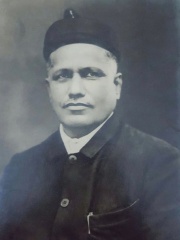
5. Chandrashekhar Agashe (1888 - 1956)
With an HPI of 66.06, Chandrashekhar Agashe is the 5th most famous Indian Businessperson. His biography has been translated into 32 different languages.
Chandrashekhar Govind Agashe (14 February 1888 – 9 June 1956) was an Indian industrialist, lawyer, educator, and philanthropist, best remembered as the founder of the Brihan Maharashtra Sugar Syndicate Ltd. He served as the managing agent of the company from its inception in 1934 till his death in 1956. Born to an aristocratic brahmin family in the Indian princely state Bhor State, he was an educator and lawyer in his youth, before going on to serve as the president of the Bhor State Council from 1934 to 1948, having previously been the council's vice president from 1933 to 1934, the council's secretary from 1932 to 1933, and the chief justiciar of the Indian princely state from 1920 to 1932, first under the 10th Raja of Bhor and then the 11th Raja of Bhor. Throughout his career, Agashe wrote extensively in the Kesari, and was a founding member of the Mahratta Chamber of Commerce, Industries and Agriculture. His numerous public addresses, written notices, and missives as part of his fundraising activities for the syndicate came to be known as the Agashe pattern, a means of equity crowdfunding, among businesses and press in Maharashtra between 1934 and 1956. Remembered for his philanthropy towards education in Maharashtra, Agashe donated extensively to the Deccan Education Society, the Bhandarkar Oriental Research Institute, and the Maharashtra Mandal. He also served as one of the co-vice presidents of the Bharat Itihas Sanshodhak Mandal from 1953 to 1955, alongside Bhagwant Rao Trimbak, Raja of Aundh and Sadashivrao Ragunathrao, Raja of Bhor, during the presidency of Malojiraje Nimbalkar IV, Raja of Phaltan. The Chandrashekhar Agashe College of Physical Education, the Chandrashekhar Govind Agashe Business Motivation & Training Centre at the Brihan Maharashtra College of Commerce, the Chandrashekhar Agashe Museum wing at the Raja Dinkar Kelkar Museum, the Chandrashekhar Agashe Road in Shaniwar Peth, Pune, and the Chandrashekhar Agashe High School in Shreepur, are named after him.

6. Ajay Banga (b. 1959)
With an HPI of 65.41, Ajay Banga is the 6th most famous Indian Businessperson. His biography has been translated into 25 different languages.
Ajaypal Singh "Ajay" Banga (born November 10, 1959) is an Indian American business executive. He is the president of the World Bank Group. He was the executive chairman of Mastercard, after having previously been president and chief executive officer (CEO) of the company from July 2010 until December 31, 2020. He retired from this position on December 31, 2021, and joined General Atlantic as its vice chairman. Before being nominated to the World Bank, he was the chairman of Exor, the Netherlands-based investment holding company controlled by the Italian Agnelli Family, and chairman of the public-private Partnership for Central America with U.S. vice president Kamala Harris. Banga is the former chairman of the U.S.-India Business Council (USIBC) representing more than 300 of the largest international companies investing in India, and chairman of the International Chamber of Commerce. Banga was elected President of the World Bank on May 3, 2023, having been nominated to the position in February 2023 by the Joe Biden administration.

7. Dhirubhai Ambani (1932 - 2002)
With an HPI of 63.70, Dhirubhai Ambani is the 7th most famous Indian Businessperson. His biography has been translated into 48 different languages.
Dhirajlal Hirachand "Dhirubhai" Ambani (28 December 1932, Chorwad, Gujarat, India – 6 July 2002, Mumbai, India) was an Indian billionaire businessman who founded Reliance Industries in 1958. Ambani took Reliance public in 1977. In 2016, he was honoured posthumously with the Padma Vibhushan, India's second-highest civilian honour for his contributions to trade and industry. Ambani faced numerous accusations of market manipulation, tax evasion, and cronyism.

8. Sundar Pichai (b. 1972)
With an HPI of 62.26, Sundar Pichai is the 8th most famous Indian Businessperson. His biography has been translated into 60 different languages.
Pichai Sundararajan (born June 10, 1972), better known as Sundar Pichai (pronounced: ), is an Indian-American business executive. He is the chief executive officer (CEO) of Alphabet Inc. and its subsidiary Google. Pichai began his career as a materials engineer. Following a short stint at the management consulting firm McKinsey & Co., Pichai joined Google in 2004, where he led the product management and innovation efforts for a suite of Google's client software products, including Google Chrome and ChromeOS, as well as being largely responsible for Google Drive. In addition, he went on to oversee the development of other applications such as Gmail and Google Maps. Pichai was selected to become the next CEO of Google on August 10, 2015, after previously being appointed chief product officer by then CEO Larry Page. On October 24, 2015, he stepped into the new position at the completion of the formation of Alphabet Inc., the new holding company for the Google company family. He was appointed to the Alphabet Board of Directors in 2017. As of May 2025, his net worth is estimated at US$1.1 billion.

9. Satya Nadella (b. 1967)
With an HPI of 59.60, Satya Nadella is the 9th most famous Indian Businessperson. His biography has been translated into 54 different languages.
Satya Narayana Nadella (born 19 August 1967) is an Indian-American business executive who is the chairman and chief executive officer (CEO) of Microsoft, succeeding Steve Ballmer in 2014 as CEO and John W. Thompson in 2021 as chairman. Before becoming CEO, he was the executive vice president of Microsoft's cloud and enterprise group, responsible for building and running the company's computing platforms.
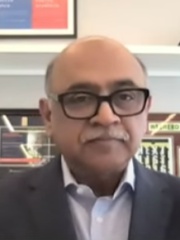
10. Arvind Krishna (b. 1962)
With an HPI of 57.88, Arvind Krishna is the 10th most famous Indian Businessperson. His biography has been translated into 17 different languages.
Arvind Krishna (born November 23, 1962) is an Indian American business executive, and the chairman and CEO of IBM. He has been CEO of IBM since April 2020 and chairman since January 2021. Krishna began his career at IBM in 1990, at its Thomas J. Watson Research Center, and was promoted to senior vice president in 2015, managing IBM Cloud & Cognitive Software and IBM Research divisions. He was a principal architect of the acquisition of Red Hat, the largest acquisition in the company's history.
People
Pantheon has 35 people classified as Indian businesspeople born between 1794 and 1984. Of these 35, 26 (74.29%) of them are still alive today. The most famous living Indian businesspeople include N. R. Narayana Murthy, Lakshmi Mittal, and Ajay Banga. The most famous deceased Indian businesspeople include Jamsetji Tata, Ratan Tata, and Chandrashekhar Agashe. As of April 2024, 4 new Indian businesspeople have been added to Pantheon including Shantanu Narayen, Kumar Mangalam Birla, and Tanya Dubash.
Living Indian Businesspeople
Go to all RankingsN. R. Narayana Murthy
1946 - Present
HPI: 71.20
Lakshmi Mittal
1950 - Present
HPI: 67.21
Ajay Banga
1959 - Present
HPI: 65.41
Sundar Pichai
1972 - Present
HPI: 62.26
Satya Nadella
1967 - Present
HPI: 59.60
Arvind Krishna
1962 - Present
HPI: 57.88
Akshata Murty
1980 - Present
HPI: 57.23
Azim Premji
1945 - Present
HPI: 56.88
Gautam Adani
1962 - Present
HPI: 55.67
Indra Nooyi
1955 - Present
HPI: 54.86
Anil Ambani
1959 - Present
HPI: 54.71
Vijay Mallya
1955 - Present
HPI: 53.16
Deceased Indian Businesspeople
Go to all RankingsJamsetji Tata
1839 - 1904
HPI: 78.92
Ratan Tata
1937 - 2024
HPI: 66.33
Chandrashekhar Agashe
1888 - 1956
HPI: 66.06
Dhirubhai Ambani
1932 - 2002
HPI: 63.70
Dwarkanath Tagore
1794 - 1846
HPI: 53.56
Cyrus Mistry
1968 - 2022
HPI: 52.56
Dorabji Tata
1859 - 1932
HPI: 48.26
Pallonji Mistry
1929 - 2022
HPI: 46.38
Indu Jain
1936 - 2021
HPI: 42.51
Newly Added Indian Businesspeople (2025)
Go to all RankingsShantanu Narayen
1963 - Present
HPI: 42.03
Kumar Mangalam Birla
1967 - Present
HPI: 37.57
Tanya Dubash
1968 - Present
HPI: 29.88
Ameera Shah
1979 - Present
HPI: 27.67
Overlapping Lives
Which Businesspeople were alive at the same time? This visualization shows the lifespans of the 9 most globally memorable Businesspeople since 1700.

